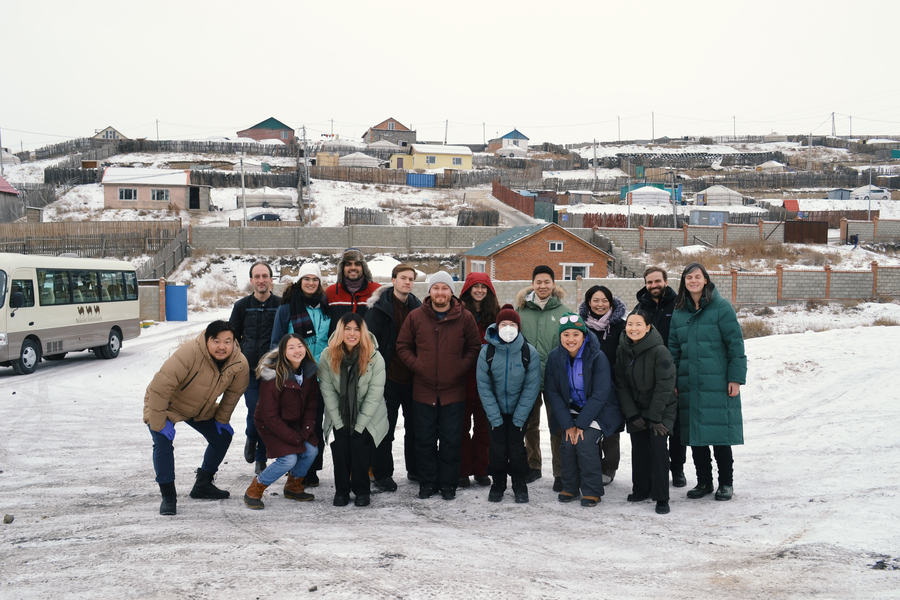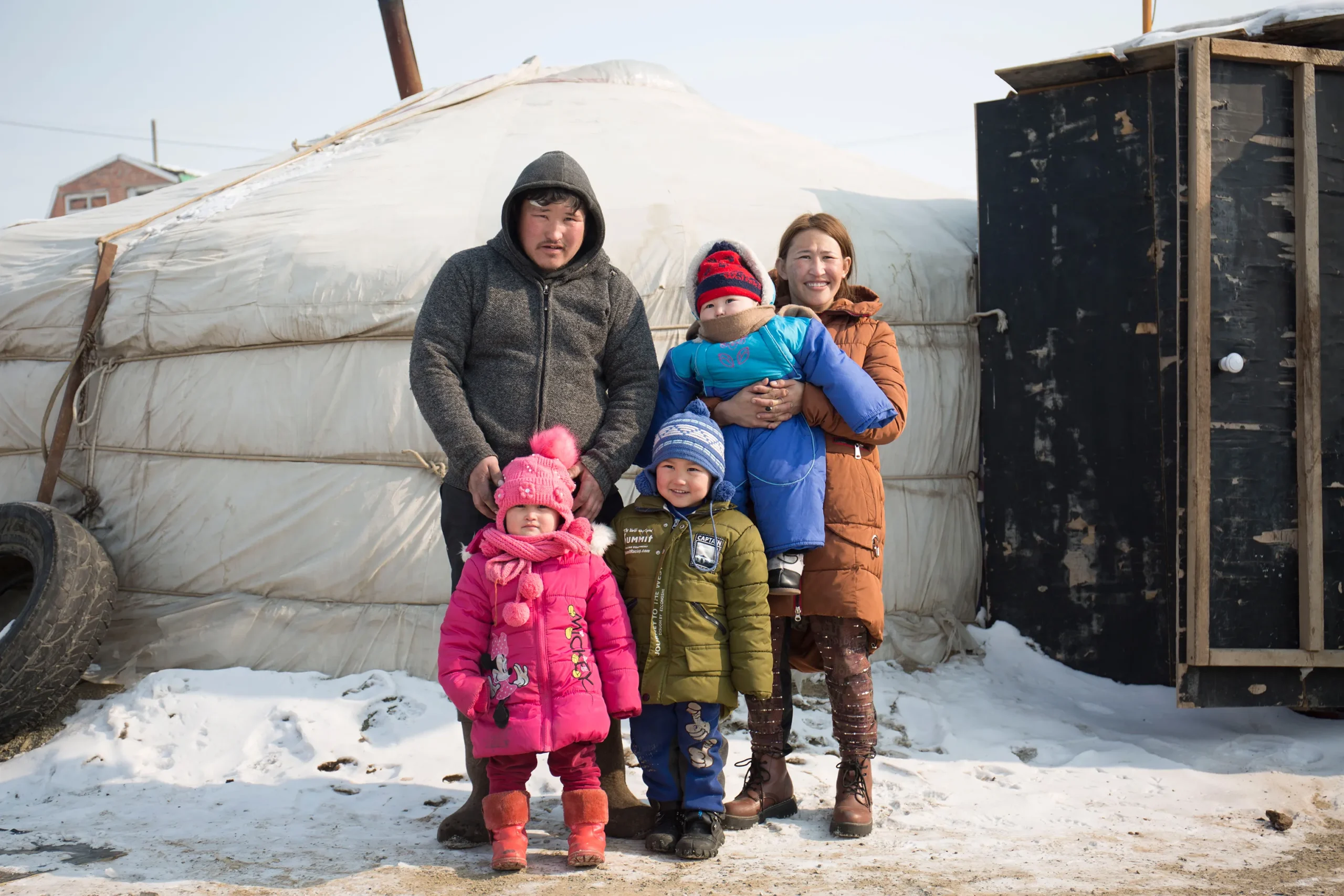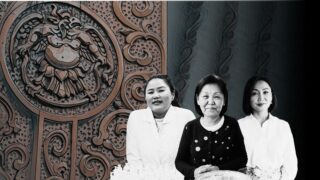...
Overview
Mongolia’s women entrepreneurs face a unique challenge. Although they own two-thirds of the country's small- and medium-sized enterprises, they often struggle to secure bank loans. Property deeds are traditionally in men’s names, requiring a husband’s consent for wives to use homes or land as collateral. When women do manage to obtain loans, they are consistently under-funded; research shows gender disparities in loan amounts as well as higher interest rates for women. Despite these obstacles, the women entrepreneurs featured here—Chantsaldulam Baatar, Munkhtsetseg Purevsuren, and Munkhtsetseg Jadambaa—have achieved success. Financial backing from Khan Bank, which received a $130 million syndicated loan from IFC, was key to their businesses’ growth. Half of this IFC investment in Khan Bank was earmarked for women-owned business, aligning with IFC’s Banking on Women program and supported by the Women Entrepreneurs Finance Initiative (known as We-Fi) and the Women Entrepreneurs Opportunity Facility. This has strengthened Khan Bank’s financing for women-owned businesses since early 2023. The investment was made possible through proceeds from IFC’s social bonds, which exclusively financed the gender component. With access to these resources, these entrepreneurs are building factories, expanding exports, and diversifying into new sectors—reshaping Mongolia’s business landscape while inspiring future generations of women.
Chantsaldulam Baatar
Chantsaldulam Baatar Founder and Director, Urgana Since 1669, ten generations of Mongolian men from the Baatar family have practiced traditional medicine, sharing their knowledge of native plants, herbs, and treatments with their sons. Chantsaldulam Baatar, trained by her father, is the 11th generation and first woman to carry on this legacy. She believes that the family’s expertise is as relevant as ever. So in 2021, she founded a company that reimagines how ancient solutions can meet today’s needs, creating household and personal hygiene products made from local, organic ingredients. Repackaging age-old wisdom as a 21st-century business makes sense for many reasons, Chantsaldulam says. “We have access to knowledge that was cultivated over hundreds of years by the people of Mongolia, and this knowledge should continue to be available to our people,” she says. “At the same time, these products contribute to the growth of the Mongolian economy, support local communities, and preserve our culture.” Synthesizing old and new Chantsaldulam grew up in eastern Mongolia, picking, grinding, and studying the herbs that comprise more than 400 traditional Mongolian medicines. After a management degree in the U.S., she launched Urgana, a home and lifestyle brand. Since its founding in 2021, Urgana has worked with more than 300 Mongolian suppliers of raw products, minerals, plants, and herbs. Its inventory of 50 products includes toothpaste varieties with cardamom and sea salt, shampoo with nettle seed oil, hand cream with sea buckthorn, and dishwashing liquid (the company’s most popular product) scented with the essence of local flowers. Supporting the community also means providing jobs for women who live near the factory. Over 90 percent of Urgana’s workers are local women. As the mother of two young children, Chantsaldulam is aware of the difficulties of balancing responsibilities at home and work. To accommodate her employees’ responsibilities to their own families, Urgana created two shifts, with policies that aim for flexibility in working hours. “Women workers face a lot of impediments here, because household tasks traditionally fall on their shoulders,” she says. “So, we try to make it easier for them to earn a living and care for their families.” Women entrepreneurs also face significant challenges, she acknowledges. It’s especially difficult to access financing because men own the deed on a couple’s property, which means women must get permission to list land or assets as collateral. In her case, her father, husband, and other family members supported her initial efforts, and she has received three loans from Khan Bank to establish and expand Urgana. Infusions of working capital have also helped Urgana pay salaries and develop new products. The company has grown quickly—from 12 employees in 2021 to 70 employees today—and strong sales have motivated Chantsaldulam to start planning a new factory with modern infrastructure. Much of the company's growth comes from exports to countries with sizeable populations of Mongolian descendants, such as China and Kazakhstan. Urgana has also received approval to export two products to the E.U., a result of Chantsaldulam’s determination that Urgana satisfy global standards for organic ingredients and compostable packaging. This will expand market opportunities while “showing the world what Mongolia can offer,” Chantsaldulam says.
Women own two-thirds of Mongolia’s small- and medium-sized businesses. Here, three women entrepreneurs describe how financing that targets women-owned businesses has helped their companies grow.
-
What financial products does IFC offer?
-
What services does IFC provide?
...
-
How does IFC help businesses attract new investors?
...
-
How does IFC contribute to global economic development?
...
-
How does IFC support businesses in securing additional funding?
...
Other Services
laboris nisi ut aliquip ex ea commodo consequat.






